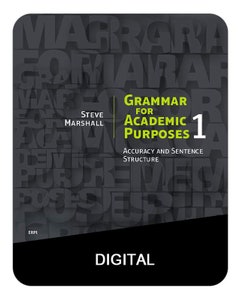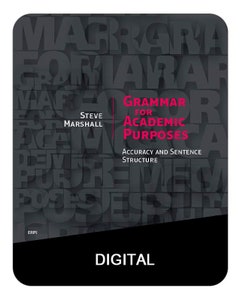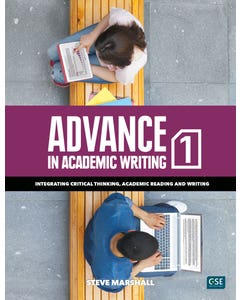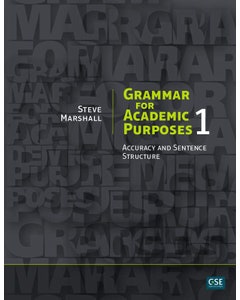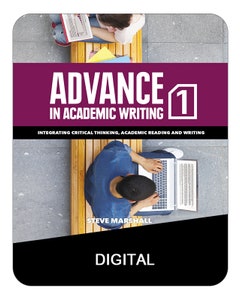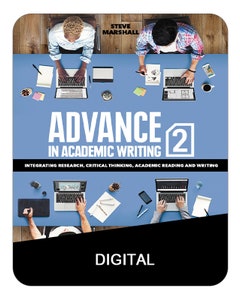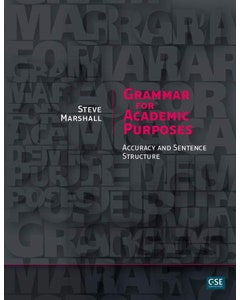Advance in Academic Writing 2
Book + e-book + Online Practice (12 months)
Advance in Academic Writing prepares students to meet the many challenges of academic writing in English for undergraduate and graduate studies. Students read and analyze a broad selection of academic texts and develop knowledge of research, critical thinking, academic style, and vocabulary usage in carefully designed tasks.
Description
Advance in Academic Writing prepares students to meet the many challenges of academic writing in English for undergraduate and graduate studies. Students read and analyze a broad selection of academic texts and develop knowledge of research, critical thinking, academic style, and vocabulary usage in carefully designed tasks. In each chapter, students practise writing in different genres, use appropriate citation styles, and review and edit their work with checklists and peer evaluation worksheets. Whether they write about autonomous cars, rehabilitation in prisons, international business leadership, or language loss, students advance in academic writing!
- The coursebook is made up of four parts and appendices: Part 1 introduces students to the writing and research processes, Part 2 focuses on essay sections, Part 3 covers different genres of academic writing, while Part 4 is a handbook on grammar and sentence structure.
- Each chapter contains authentic academic texts on a different topic of scientific and social interest from sources around the world. The texts illustrate different writing styles and genre features, and are the basis of the chapter content.
- In each chapter, students develop their critical-thinking through reading and discussion, learning how to construct coherent arguments, engage critically with research, and avoid logical fallacies.
- Students also focus in detail on developing vocabulary, grammar, and aspects of expert writing as exemplified in the readings.
- The grammar and sentence structure focus of each chapter is consolidated in the Handbook (Part 4) through detailed explanations and further practice.
- Chapters end with writing tasks ranging from technical paragraphs to a full research essay.
- Research skills, APA and MLA citation styles, reporting verbs, citation phrases, and avoiding plagiarism are covered in detail.
- Writing tasks go through a stage of review and editing with checklists and evaluation sheets.
- Part 3 focuses on different modes of writing across the disciplines: describing processes and statistical data, writing arguments, making comparisons, writing about problems and solutions, and writing about causes and effects.
- Two review chapters help students review and consolidate their learning.
Digital Components
Book Information
Similar works





